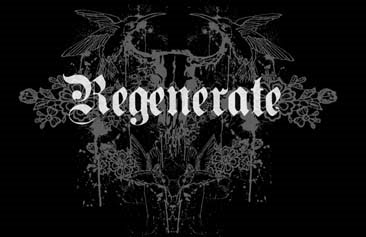
Thursday, 24 June 2010
Nike Sweat shop workers

Regenerate Kids helping Kids, build my dreams campaign

These are some of the statistics :-
- 40% of children are malnourished
- 2 million can not afford to go to school
- 1.7 million live on the streets
- 63% of kids in Surabaya live on the streets
On my return I got together a plan and started telling my Shop collective about these key social issues, we decided to take action.
I got together two key SHOP FAMILY artists in Nottingham Jon Burgerman a Internationally recognized doodler and Nick Chaffe an award winning illustrator.

The three of us designed 3 pieces of artwork and sent it to the street kids at Phae foundation and The Childrens foundation in Lombok, Phae put posters around the slums and 30 kids came to colour the artwork.
These pictures shows the children colouring in our work and wearing the free ‘Regenerate Build my dream Tshirts’ that Phae had donated.

There work will go on cards to sell and our work will be printed on to Organic bags. Each bag comes with pens to doodle on and encourages big kids like us to collaborate, interact and play.
Each bag will be sold for £10 and all the money goes to help street kids.
Distro Printers
 Some Distro labels run factories to cater for the demand of the industry, on my second trip to Bandung I visited Phae Ratulangie who produces 1000s of pieces a week, for designers and Distro businesses this includes Oscar Lawelleta and Hard Rock Café. Phae owns 4 outlets and 2 print and manufacture factories.
Some Distro labels run factories to cater for the demand of the industry, on my second trip to Bandung I visited Phae Ratulangie who produces 1000s of pieces a week, for designers and Distro businesses this includes Oscar Lawelleta and Hard Rock Café. Phae owns 4 outlets and 2 print and manufacture factories.
Phae has built a skate ramp and runs a foundation called The Phae Adikaka foundation which encourages parents to interact with their children, and which keeps the children of Bandung away from drink, drugs and prostitution by giving them a positive place to come to after school.
He also runs this rad baby clothing label called Parental Baby, which is totally Regenerate Style.
I spent one day doing a collaborative workshop with Phae and the children teaching them about ethical fashion and about ways to be a entrepreneur in their own area.
Check out this film: -
Distro Bandung
 Southeast Asia’s financial crisis struck Indonesia in 1997 and quickly turned into a political and economic crisis.
Southeast Asia’s financial crisis struck Indonesia in 1997 and quickly turned into a political and economic crisis.
With many people loosing their jobs and homes, this effected the area of Bandung, where Poverty levels increased by 30%, which led to the birth of Distro

Distro
•Began as reaction against expensive mass produced brands.
•Deriving from the urban street culture
•Where youth made their own clothing
•To express their individual identities and lifestyle interests.
•Bandung is the centre for textiles and clothing manufacturing in Java
•Which lead to Distro entrepreneurs opening their Shops selling their goods
These retailers are called DISTRO
Fair Trade Ikat
 During my trip to Indonesia I discovered Ikat through Oscar Lawaletta’s exhibition in Jakarta. The colors and patterns of Ikat inspired my work, rich in traditional values and culture, Ikat was passed down through generations.
During my trip to Indonesia I discovered Ikat through Oscar Lawaletta’s exhibition in Jakarta. The colors and patterns of Ikat inspired my work, rich in traditional values and culture, Ikat was passed down through generations.
- 30 years ago homegrown Cotton and natural dyes were grown all over Indonesia for Ikat..
- But poor economics, meant that communities were forced to stop growing cotton for extra income as weaving no longer made economic sense.
- With modernization came cheaper cloth and bright chemical dyes
- Threats from the global market forced weavers to act quicker so they abandoned growing cotton and natural dyes
- Pockets of weavers still remain, but in poor marginal areas of Indonesia.
After researching into fair trade organizations, I only found one certified fashion company in the whole of Indonesia.

This business is based in Bali called Threads of Life.
Threads of Life encourages weaving communities to revive techniques of weaving and natural dyeing that are in danger of disappearing.
Clean Batik Campaign

Although Batik is a flourishing trade this has come at a price :-
- Batik produces the highest annual emission of CO2 as a result of high dependency on kerosene and electricity.
- The Indonesian Ministry of Environment has identified batik as one of the worst river polluters in the country.

The Clean Batik Initiative, a 4 year program implemented the German Indonesian Chamber of Industry and Commerce. The Consisting of three components;- sustainable production, sustainable consumption and policy dialogues. By Supporting Batik producers and helping them produce cleaner and greener batik.
Clean Batik Initiative:-
- Trains batik makers in the art of clean batik
- Supports Green production
- Promotes producers internationally
- Supports an International Dialogue


